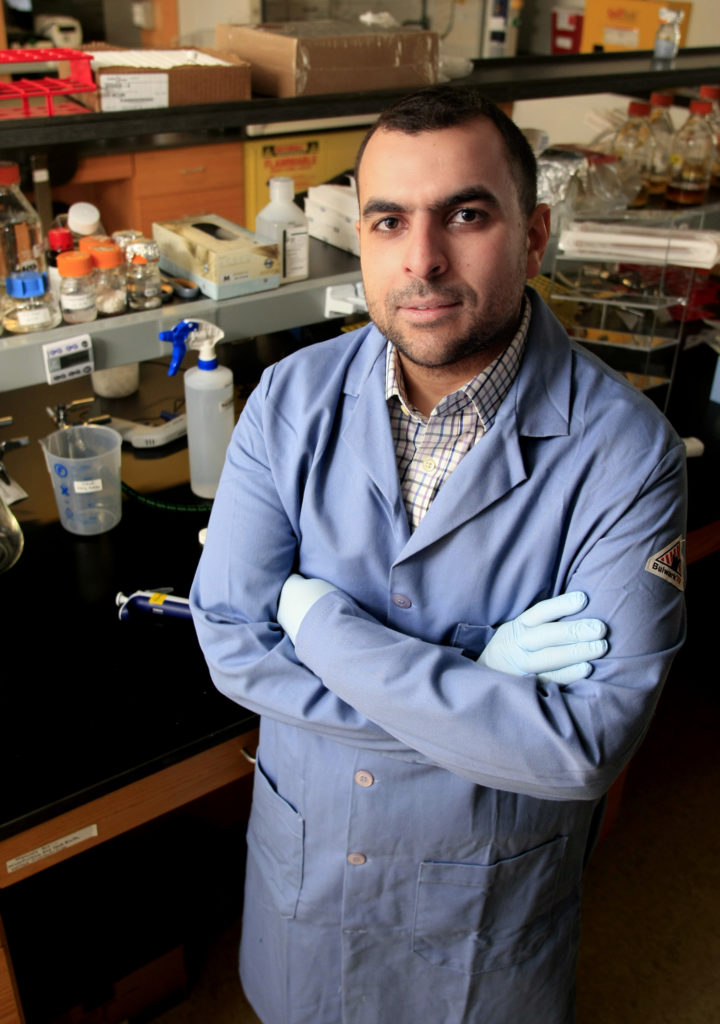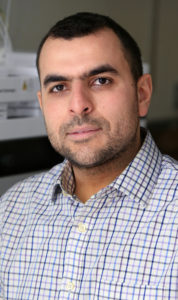Mohamed Abou Donia, PhD ‹ Back To 2020 Winners
2020 Winners
Assistant Professor
Molecular Biology
Princeton University
Vision
The human microbiome is correlated with various human diseases, but the molecular mechanisms underlying most of these correlations remain largely unexplored. Our long-term vision is to systematically reveal these mechanisms by studying the repertoire of small molecules that the human microbiome encodes, most of which remain uncharacterized. These cryptic molecules have the potential to explain the mechanisms by which the microbiome plays a role in human health, disease, and response to therapeutic interventions. Cracking this molecular code will not only increase our basic understanding of microbiome-human interactions, but it will also guide designs of novel diagnostic, therapeutic, or preventative strategies that take the microbiome into consideration.
(Featured image photo credit: Frank Wojciechowski)
Mohamed Abou Donia, PhD received his B.Sc. in Pharmacy from the Faculty of Pharmacy, Suez Canal University, Egypt in 2004. He obtained his PhD in 2010 from the Medicinal Chemistry Department, School of Pharmacy, University of Utah. Following his PhD, Dr. Donia performed his post-doctoral training at the Department of Bioengineering and Therapeutic Sciences at the University of California, San Francisco, where he studied small molecules produced by members of the human microbiome and their role in mediating microbe-host and microbe-microbe interactions. In 2014, Dr. Donia started his independent laboratory at the Department of Molecular Biology, Princeton University as an Assistant Professor, where he focuses on uncovering the chemical and biochemical capacities of the human microbiome, and their role in human health, disease, and response to therapy. Dr. Donia is a recipient of the NIH Director’s New Innovator Award, the Kenneth Rainin Foundation Innovation and Breakthrough Awards, and is named a Pew Biomedical Scholar.
Systematic characterization of microbiome-derived small molecules in colorectal cancer

Colorectal cancer, CRC, is a gut disease that affects hundreds of thousands of patients each year. Several factors are thought to contribute to the development of CRC, including the human gut microbiome – the collection of microbes that live in the human gut. In this project, we aim to test this idea by studying specifically the chemical signals that gut microbes produce, and their role in the disease.

“The Pershing Square Sohn Prize will allow us to paint a comprehensive map of the chemical and biological interactions that occur between the human gut microbiome and intestinal cells in colorectal cancer. This map will not only reveal the identity and mechanism of action of microbiome-derived small molecules that play a role in the etiology of colorectal cancer, but will also enable the development of microbiome-targeted diagnostic and therapeutic applications for this important disease.”
We will analyze patient data to identify the chemicals that are produced by gut microbes in CRC patients but not in healthy subjects. Once identified, we will produce these chemicals in the laboratory and test their activity in biological assays that are relevant to CRC, in both isolated cells and mice. These studies will increase our understanding of the role of gut microbes in the development of CRC, and will inform future endeavors to target these microbes as a new way of treating or preventing this widespread disease.
“Innovation in scientific research is designing and performing a high-risk exploration, which, if successful, would result in the birth of a whole new field of study.”